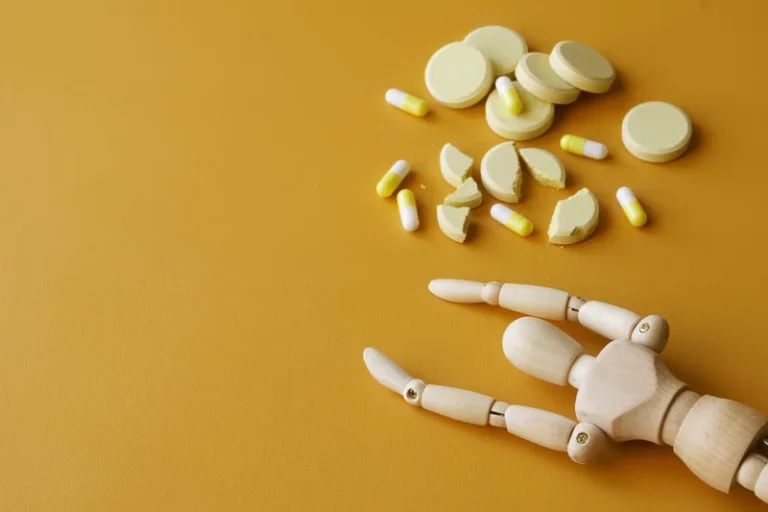
If you’re in recovery from alcohol use disorder, adding this supplement into your diet can help with anxiety, depression, best vitamins for recovering alcoholics chronic pain, and many other issues that might trigger alcohol cravings. DL-phenylalanine can also be a useful supplement for alcohol withdrawal. Not only does it play an important role in your immune system and intestinal health, it also impacts the health of your brain—including some of the chemicals that regulate anxiety and depression. Because alcohol can interfere with the body’s ability to synthesize and absorb L-glutamine, people who drink heavily are often deficient in this amino acid, which can impact their mental health. Research suggests certain B vitamins can help treat alcoholic liver disease by alleviating alcohol-induced oxidative stress8.
Vitamin Deficiency Treatment In Drinkers
However, further studies are required to clarify the relationship between alcohol consumption and the intake of vitamin B to be able to provide nutritional management strategies for chronic liver disease. In addition to vitamin supplementation, incorporating mineral and antioxidant supplements can play a vital role in supporting recovery and overall health in individuals struggling with alcoholism. These supplements can provide essential nutrients, promote cognitive function, reduce cravings, and offer antioxidant support to counteract the damaging effects of alcohol.
Vitamins by Condition
- Most people can get enough vitamin A from eating dairy, oily fish and liver.
- WKS often results due to inadequate absorption of thiamine from the digestive system, a common consequence of excessive alcohol consumption.
- It accounts for 90% of AMD cases, affecting about 20 million U.S. adults and hundreds of millions of people worldwide.
- Even though vitamin C consumption has been shown to raise circulation levels of vitamin B9 and lower Hcy levels 118,120,121, the relationship between them remains unknown.
Antioxidants like vitamin C and vitamin E can help counteract the harmful effects of alcohol metabolites on the body’s cells and tissues. Many holistic healers believe there is a link between sugar and alcoholism. That is, when alcohol is consumed there is an initial energy rush, followed by a severe drop in energy due to dropping sugar levels (blood glucose levels).

Dietary Adjustments for Alcoholics
- Similar to folic acid, deficiency can be caused by inadequate intake and alcohol inhibiting storage and absorption.
- In dry AMD, the macula starts to thin and deteriorate as deposits of fat and protein (drusen) accumulate behind the retina.
In addition, mixing these substances can cause liver strain and gastrointestinal distress. Consult your doctor about drinking Substance abuse and any medications or supplements you are currently taking. Balancing social drinking and dietary supplements requires careful consideration of your overall health and nutritional needs.
Other Vitamins Drinkers Should Consider
- Incorporating these nutrients into your diet and, if necessary, taking supplements can help keep your liver, pancreas, and intestines functioning optimally and reduce the risk of alcohol-related health concerns.
- There are particular recommended vitamins for a recovering alcoholic.
- Consult with your healthcare provider to determine the best course of action and appropriate supplementation.
- Alcohol interferes with nutrient absorption, damages the gastrointestinal tract, and impairs the liver’s ability to metabolize nutrients.
- Vitamin B1 deficiency can cause weight loss, irritability, fatigue, and in extreme cases lead to Wernicke-Korsakoff syndrome, also known as wet brain.
- Taking more than 20mg of iron everyday can cause stomach problems such as vomiting, diarrhoea and pain.
- As a result, many individuals who misuse alcohol may become malnourished.
Research shows that DHM can increase the efficacy of enzymes that metabolize alcohol, helping your body to eliminate it faster. DHM also appears to reduce inflammation and fat accumulation in the liver, helping to guard against alcohol-related liver disease. Vitamin C can ease withdrawal by increasing the alcohol clearance rate9. Studies suggest that taking two grams of vitamin C can reduce toxic effects on the liver. Nutrient deficiencies can contribute to developing or exacerbating depression and other mood disorders, as the body produces less serotonin7. Since alcohol is a depressant, it can easily worsen depression in an individual who drinks excessively.
Top Five Necessary Vitamins for a Recovering Alcoholic Research Based
In dry AMD, the macula starts to thin and deteriorate as deposits of fat and protein (drusen) accumulate behind the retina. The late (advanced) stage causes a central blurry spot in vision that grows larger or worse with time. The most common type of this vision-robbing disease is called dry AMD. It accounts for 90% of AMD cases, affecting about 20 million U.S. adults and hundreds of millions of people worldwide.


Vitamin A is important for vision, immune function, and cell growth. Each individual’s needs may vary, and it’s essential to address any underlying nutrient deficiencies and consider personal health factors when choosing supplements. Multivitamins typically contain adequate amounts of necessary vitamins and minerals for the day.
Health News

All in all, a regular B-complex is one of the most important vitamins for recovering alcoholics to take. Vitamins and nutrient-dense foods are imperative in treating alcohol addiction and its consequences. However, heavy drinkers experiencing severe side effects might consider the following additional supplements. Taking supplements can help alcoholics in experiencing withdrawal symptoms or undergoing detoxification. Some vitamins can provide significant benefits to counter some of the adverse effects of drinking. Alcohol depletes and inhibits the absorption of vital nutrients, including vitamins.

Nutritional Support When Dealing with Withdrawal
In the journey towards recovery from alcoholism, replenishing your body’s nutrients is crucial. Due to decreased hepatic storage, vitamin B9 and vitamin B12 deficiencies can develop quickly in chronic liver illness. However, alcohol consumption affects the metabolism of homocysteine (tHcy) because the enzyme cofactor for the conversion of tHcy to methionine is vitamin B12. Decreased levels of vitamin B12 levels were shown to be adversely connected with tHcy and significantly linked with indicators of alcohol-related liver impairment in recent research 52. Another research found that individuals with severe chronic liver disease had high vitamin B12 plasma levels but decreased vitamin B9 plasma levels 53. Conversely, Gibson et al. 54 has shown that two weeks of moderate consumption of alcohol (i.e., red wine, or vodka) increased tHcy and reduced the statuses of both vitamin B9 and B12.
 Hizbut Tahrir Indonesia Melanjutkan Kehidupan Islam
Hizbut Tahrir Indonesia Melanjutkan Kehidupan Islam
